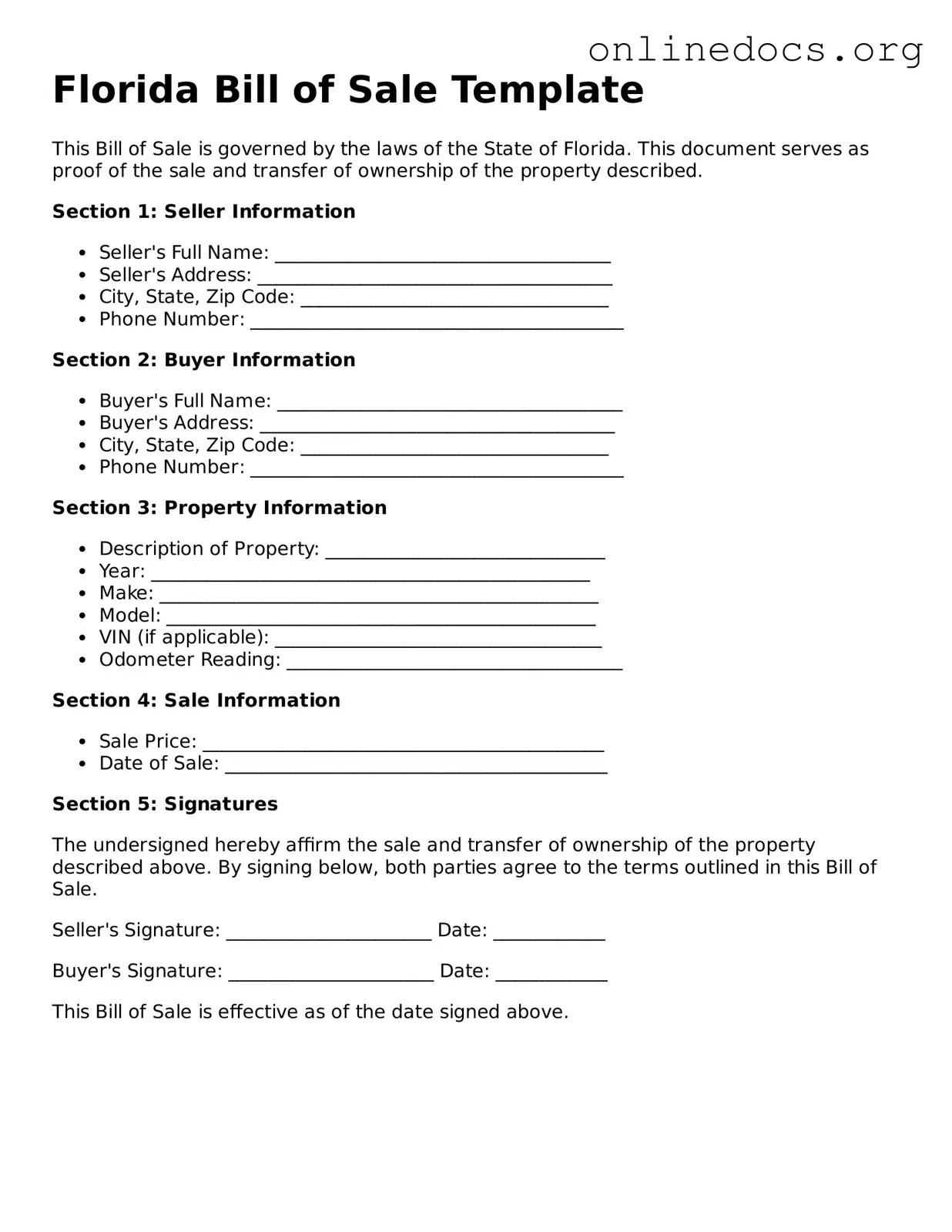When it comes to selling or purchasing a vehicle in Florida, the Bill of Sale form is a crucial document. However, many individuals make common mistakes when filling it out, which can lead to complications down the road. Understanding these pitfalls can save you time and hassle.
One frequent error is failing to include all necessary information. The form requires specific details such as the vehicle's make, model, year, and Vehicle Identification Number (VIN). Omitting even one of these can create confusion and may render the document ineffective. Ensure that every field is completed accurately.
Another common mistake involves incorrect dates. The date of the sale is vital for establishing the timeline of ownership transfer. If the date is wrong, it could complicate registration and tax issues. Always double-check the date before submitting the form.
Many people overlook the importance of signatures. Both the seller and the buyer must sign the Bill of Sale for it to be legally binding. Failing to obtain both signatures can lead to disputes about the transaction. Make it a point to confirm that all required parties have signed the document.
In addition, some individuals neglect to keep a copy of the completed Bill of Sale. This document serves as proof of the transaction and may be needed for future reference, such as for tax purposes or in case of disputes. Always make copies for both parties involved in the sale.
Using vague language is another mistake that can create ambiguity. The Bill of Sale should clearly outline the terms of the sale, including the sale price and any conditions. Ambiguity can lead to misunderstandings later, so clarity is key.
Many people also forget to include the odometer reading at the time of sale. This detail is important for both parties, as it reflects the vehicle's mileage and can affect its value. Make sure to record this information accurately on the form.
Another error is not verifying the buyer's identity. While this might seem unnecessary, confirming that the buyer is who they claim to be can prevent potential fraud. Requesting a valid ID can help safeguard against future issues.
Lastly, some individuals fail to check local requirements. While the Bill of Sale is a standard document, certain counties or municipalities may have additional requirements. It’s wise to check with local authorities to ensure compliance with all regulations.
By being aware of these common mistakes, individuals can navigate the process of completing a Florida Bill of Sale with greater confidence and accuracy. Paying attention to detail can prevent future complications and ensure a smooth transaction.
